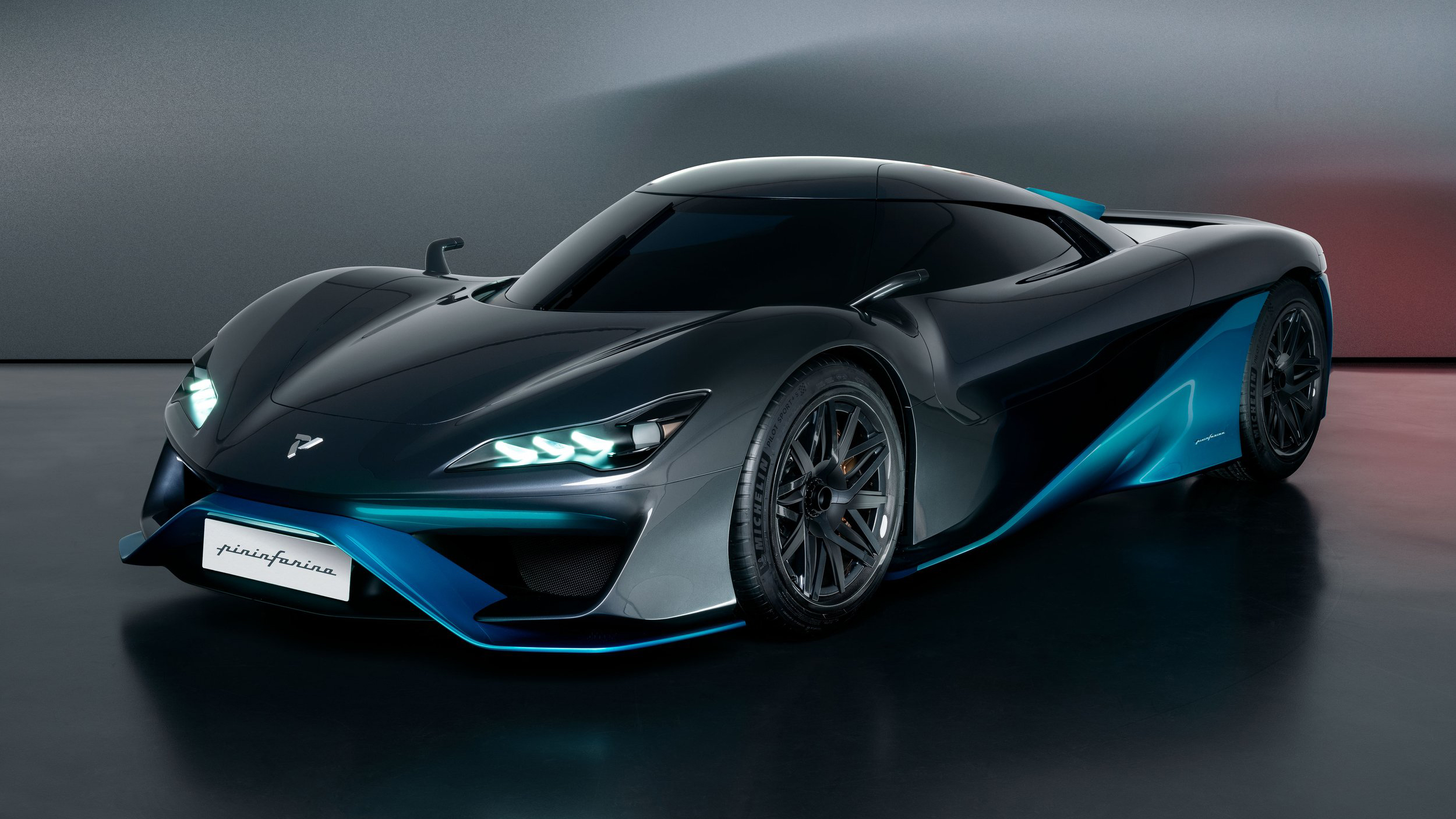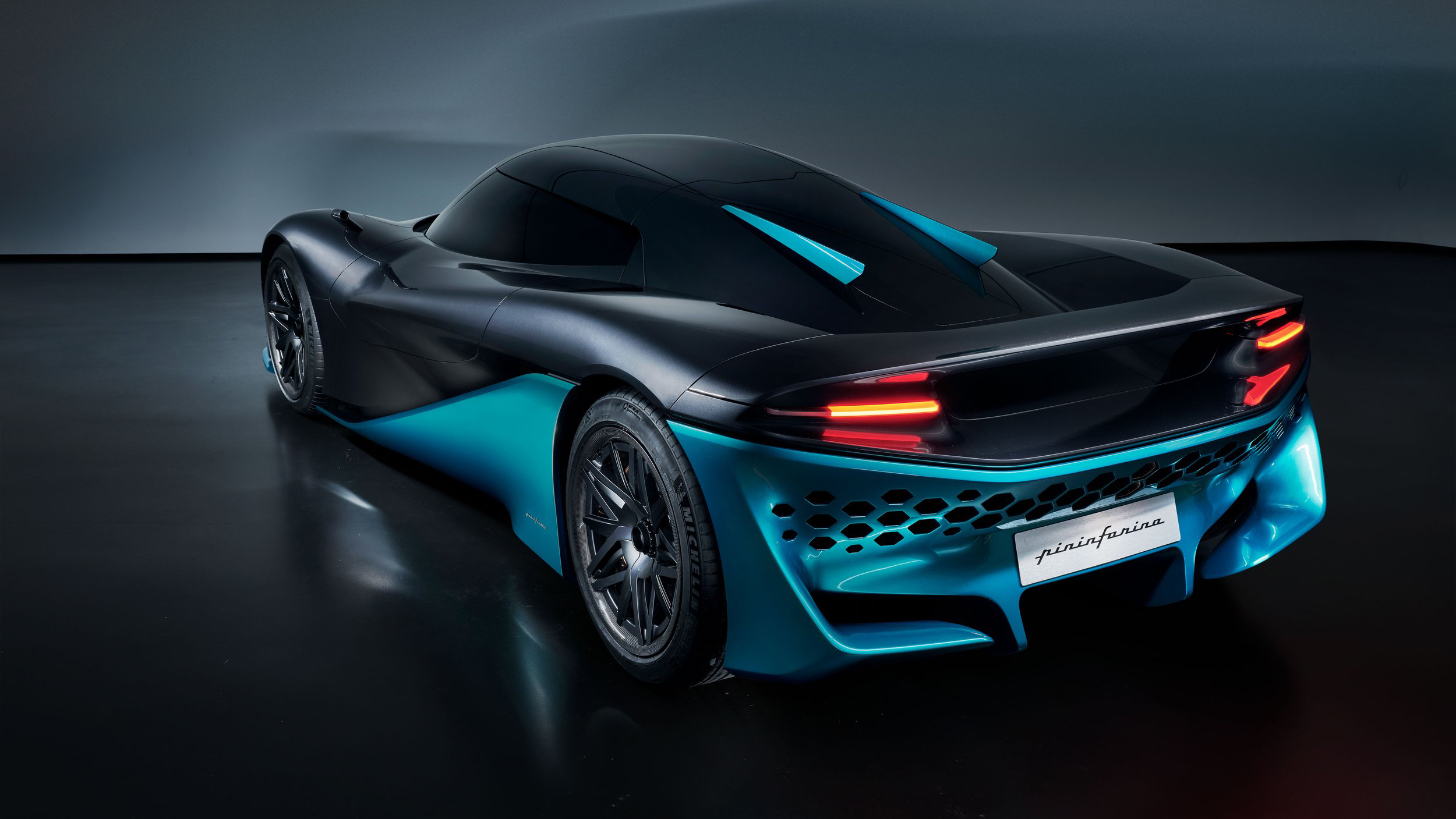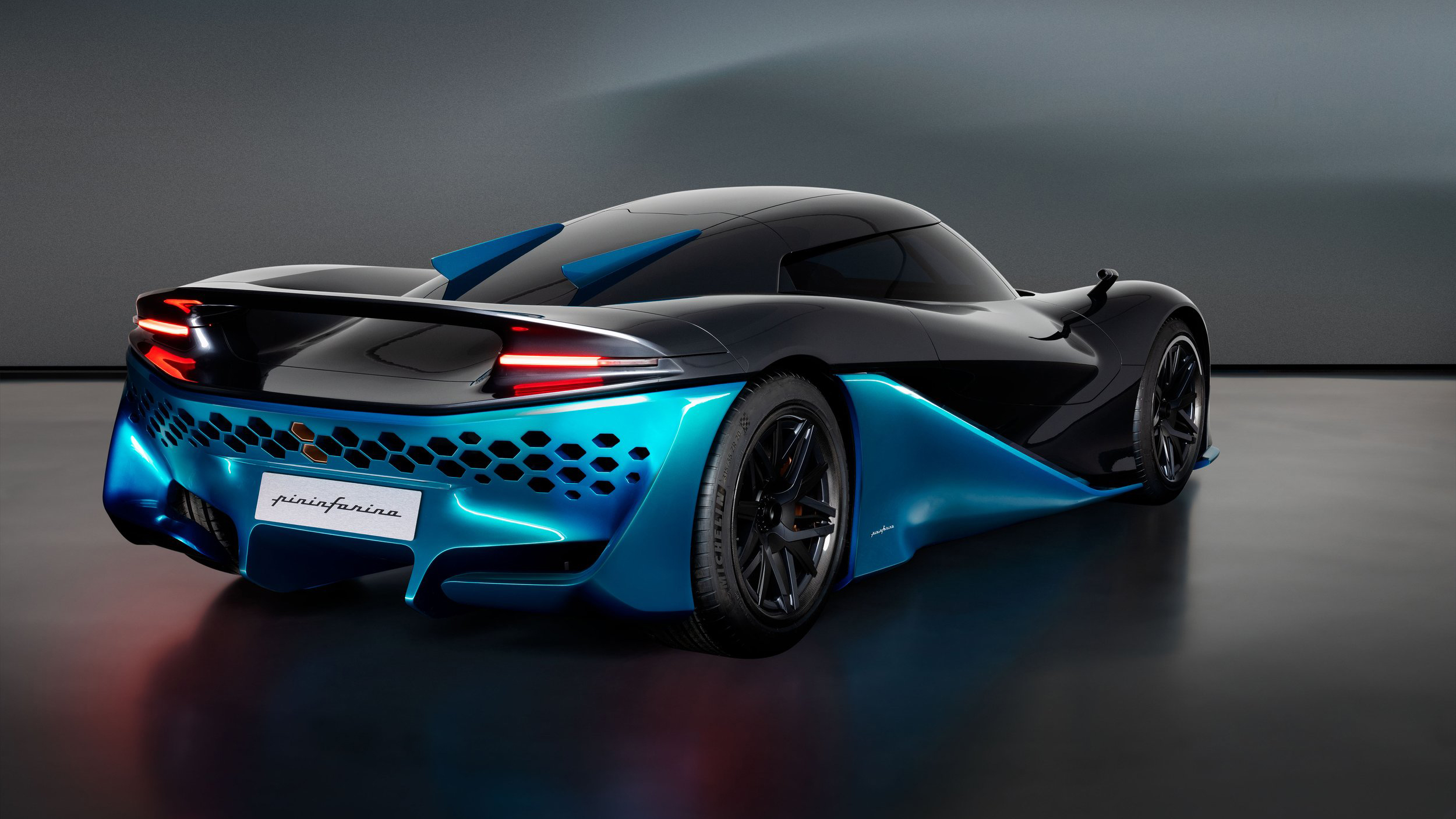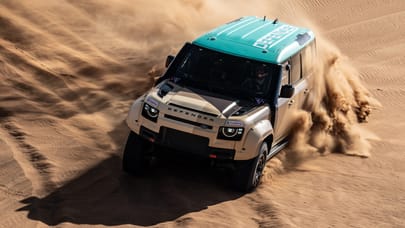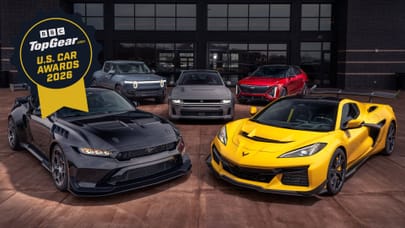
The Viritech Apricale is a hydrogen-fuelled hypercar with 1,072bhp
Oh and it’s been styled by Pininfarina, in case 1,072bhp wasn’t eye-catching enough already
Those of you with long memories will vaguely recall that a British start-up announced its intention to build a hydrogen powered hypercar last year. Many of us scoffed at the ambitions of an unknown entity, and promptly forgot all about it.
Well, um, it’s here. Say hello to the Viritech Apicale, a Pininfarina-styled, sub-1000kg, zero-emissions machine that happens to churn out 1,072bhp. Weren’t expecting that, were you?
Let’s run through the specs quickly. A 400kW electric motor on each axle delivers the headline power figure and all-wheel drive, not to mention 738lb ft of torque.
That results in 0-62mph in under 2.5 seconds, Viritech claims, with a top speed on the lengthy-jail-sentence side of 200mph. It’s a single-speed transmission only, and there’s a 6kWh lithium-ion battery in there. For context, you’d need 13 times that much capacity for a base-spec Porsche Taycan.
According to its makers, the Apricale can charge and discharge those cells fully in under a minute, allowing it to recoup unprecedented levels of energy through regen braking. As such, you’re looking at a projected range of more than 350 miles.
‘But hang on, how have they kept the weight below a tonne?’ you must be wondering. Well, this is one of the more interesting aspects of the Apricale’s design: you see, rather than reinforce the hydrogen tanks and then find room for it in the chassis, Viritech has gone ahead and made the tanks a structural part of the carbon fibre composite monocoque. Clever.
The way the Apricale deploys its power is ingenious too: both the fuel cell and battery can power at any given time, with Viritech suggesting that the battery will take care of low speed and the fuel cell managing motorway speeds, with full-bore acceleration calling both into action simultaneously. So this isn’t a range-extender in all but name, either.
Those wheels are Dymag carbon fibre rims with a magnesium centre, with Michelin Pilot Sport 4s deployed for much grip. Carbon-composite brake discs feature throughout, with six- and four-piston calipers and the front and rear respectively.
Meanwhile double wishbone suspension is employed front and rear, with pull-rod actuated torsion bars used on both axles too. Very Formula One.
“Hydrogen fuel cells have, until now, been used as range extenders for powertrains with batteries at their heart,” explains Viritech’s CTO Matt Faulks. “We’ve essentially turned that approach on its head, developing a powertrain around a multi-hundred kW fuel cell system supported by a lightweight but highly efficient battery. This delivers hypercar performance for Apricale, but at less than half the weight of typical BEV hypercars.”
Top Gear
Newsletter
Thank you for subscribing to our newsletter. Look out for your regular round-up of news, reviews and offers in your inbox.
Get all the latest news, reviews and exclusives, direct to your inbox.
The firm says it’s in discussions with Pininfarina to build a limited run of 25 units, with first deliveries expected early in 2024. Is this the future of hypercars?
Trending this week
- Car Review
BMW 1 Series




